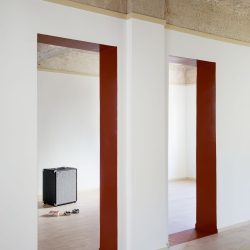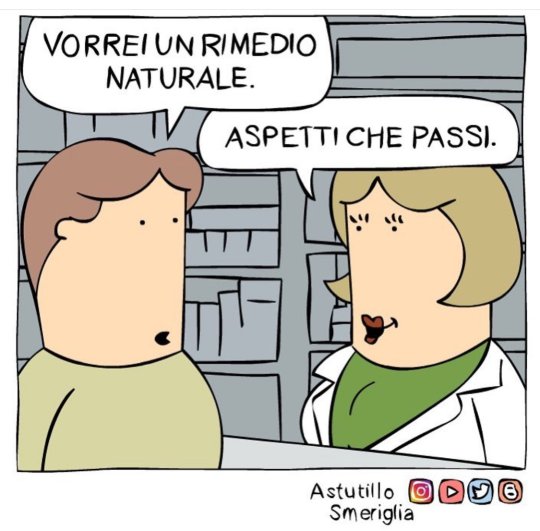#Portalis
Explore tagged Tumblr posts
Text

"Hell-Mouth" - Acrylic paint on canvas
#a bit of an overdeveloped piece...#i'm gonna post it anyway!#art on tumblr#art#art on canvas#painting#paint#hell mouth#portal to a hell dimension#inspired by a lot of stuff with hell-portals in it#dimension#acyrlic#acrylic paint#fire#burn#surrealism#surreal art#mouth#font#passageway#hell#dark aesthetic#portal#portalis#it beckons thee to enter#will you?#hellfire#big nod to Hellgate: London and Buffy#layered painting#textured painting
93 notes
·
View notes
Note
Given that you are more knowledgeable than me in these matters, how problematic adopting a child during the Napoleonic Era was? And let's say, a child was born from a secret affair, what would have happened if it was discovered? What kind of issues the wife and the child would have encountered? Lastly, how hard would have been for the real biological father to adopt their child, after the death of the supposed father?
Feel free to contradict me if I say anything nonsensical; once again, I’m not infallible.
The short answer: I have no idea about adoption. During napoleonic era if the wife were caught in flagrante delicto with an adulterous child, the husband could, in addition to requesting a divorce, have the wife imprisoned, and it’s possible that the court would grant the husband’s request since adultery for a women is punishable by a prison sentence while the husband will only be entitled to a fine . (This is why I think that Jacques-Marie Botot, despite becoming bitter towards Sophie, the widow Momoro, according to some sources, because he fell from disgrace during napoleonic era, still had enough decency to let her go with her lover and not cause her trouble. The fact that she had a child by her lover and was not pursued by the police might be why Botot never mentioned in his records that he had divorced his wife, among other things but like I said before it was not the villain Sophie or the villain Jacques-Marie, I think the wrongs were shared). The child would have lost much of their inheritance.
Well, the third response is very complicated, as you’ll see in the long answer I’m about to give. But yes, the father can acknowledge his child, although there are several obstacles and issues with that, even though he will have certain prerogatives.
By the way, for some courts under Bonaparte, there was an estimation that children from adulterous relationships were considered "monstrosities in the social order" and a "real calamity for morals," according to the terms of the tribune Lahary. This shows how much this weighed on their shoulders.
Warning: I will discuss the rights of natural children during the Revolution before addressing Bonaparte
Napoleon once said, "Society has no interest in recognizing bastards," and he ordered this in the Civil Code. During the Revolution, some revolutionaries fought to ensure equality between illegitimate and legitimate children. Speaking of Prieur (since this is the origin of the question😊 due to my comment about his goddaughter/daughter in your excellent post ), an interesting point about the city of Dijon is that some of cahiers de doléances, such as those from the Third Estate of Dijon, expressed the desire to improve the conditions (of natural children) so that they would be useful to the state. Others, like those from certain communities of Aix, demanded that they be granted civil and political existence. These demands were realized early in the Revolution: the 1789 Declaration of the Rights of Man and Citizen abolished "bastardy," and the law of 12 Brumaire, Year II (1793), granted natural children the same inheritance rights as legitimate children.
On June 4, 1793, Cambacérès, on behalf of the Committee of Legislation, presented a draft decree aimed at granting rights to natural children. In his speech to the Convention, he emphasized the importance of restoring equality that had been destroyed by the old law, asserting that the Convention must "restore the rights to natural children that had been so unjustly taken from them." However, it should be noted that not all revolutionaries agreed on granting rights to natural children.
Cambacérès' draft decree was part of a political will to grant all citizens, including children, their civil rights, regardless of age, gender, or status. This marked a significant step forward, as it recognized rights for children, beings naturally dependent on adults, thus realizing the revolutionary principle that "all men are born free and equal in rights." This initiative fulfilled the promise of 1789.
The question of inheritance rights for natural children was first raised on September 20, 1792, by Léonard Robin, who proposed that they inherit from their parents, though not on equal footing with legitimate children. This debate, centered on inheritance, concerned not only the rights of natural children but also those of their mother and the restrictions imposed by the presumed father.
However, the initial decree by the Committee of Legislation did not go as far. It granted natural children inheritance rights from their father, but with restrictions: if legitimate children existed, they should not be disadvantaged. In 1793, a proposal was made to eliminate the term "bastard," a term seen as insulting, replacing it with "natural child."
Léonard Robin's proposal, on the other hand, went further by granting mothers the exclusive right to designate a father for their child, believing that women were the only ones who could judge paternity. This position sought to protect mothers from the abuses of men trying to claim the inheritance of a child born out of wedlock, particularly those trying to claim a significant inheritance.
However, in August 1793, Cambacérès' new draft rejected the possibility of paternity investigations. This draft prioritized the rights of the father, allowing him to choose whether or not to recognize his natural child, without the mother being able to force recognition. This was based on the idea that paternal recognition should be the free will of the man, not an obligation imposed by the law.
The reasons for this restriction were mainly economic: once natural children had the same rights as legitimate ones, recognition of paternity had significant consequences, especially regarding inheritance and family name. As a result, fathers now had the right to choose whether or not to recognize a child and include them in their family, while mothers remained solely responsible for the child.
Berlier, a member of the Committee of Legislation, justified this position by stating that the mother alone was responsible for the situation of her natural child, as she had not secured a "paternal status" beforehand, meaning a marriage contract. Although Berlier was sympathetic to the suffering of natural children and their mothers under the Ancien Régime, he believed that paternity recognition should remain a father's right to prevent abuses and fraud. He also highlighted the practical and economic consequences of recognition: once a natural child was recognized, they were entitled to a share of the inheritance, which represented a significant "cost" to the father. (This once again shows the limits of revolutionary ideas, and I say this without bashing).
As an example, historian Suzanne Desan, after studying the decisions of the Committee of Legislation and the Court of Cassation between 1794 and 1804, shows that the few natural children whose cases were examined by the authorities were systematically deprived of their rights. Provincial courts strictly applied the law of 12 Brumaire, making it very difficult to recognize paternity. For instance, a 40-year-old woman, Marie-Catherine Dampville, tried to prove her paternity with her deceased father by producing a baptismal certificate and witnesses, but these were deemed insufficient. The law now required more rigorous written proof, such as a marriage promise or demonstration of "continuous care," which she could not provide.
Now let’s return to the subject of Bonaparte, the Civil Code, and the rights of natural children.
Aside from the phrase he said about natural children (it is worth noting that he used the term "bastards," a word considered insulting by the revolutionaries who tried to erase it by using the term "natural children"), here is what Bonaparte said: "As soon as there is a possibility that the child might be the husband's, the legislator must turn a blind eye." But he also says, "There must be a fixed rule to remove all doubts," Napoleon Bonaparte continues. "It is said that this is against morality. No; because if the absolute principle were not adopted, the woman would say to her husband: 'Why do you want to limit my freedom? If you suspect my virtue, you can prove that the child is not yours.' This must not be tolerated. The husband must have absolute power and the right to tell his wife: 'Madam, you will not go out, you will not go to the theater, you will not see such and such a person; because the children you bear will be mine.'"
Now, the legal articles: "A child conceived during the marriage has the husband as its father. The law does not accept exceptions to this paternity, neither the wife’s adultery nor the husband's natural or accidental impotence." The Civil Code, through principles like the wife’s obedience and her obligation to follow her husband, as well as harsher penalties for female adultery, tends to limit women's rights. Paternity presumption and the prohibition of questioning paternity are in effect.
The evolution of paternal rights in France, particularly through the laws of Year II and the 1804 Civil Code, highlights that these laws, which were supposed to offer more rights to natural children, actually reinforced the rights of fathers to the detriment of unmarried mothers and their children. Historians have identified a conflict between equality among children, regardless of their origin, and the father's liberty, with the father generally holding dominion.
Despite these inequalities, the laws of Year II are sometimes considered a precursor to modern fatherhood, emphasizing paternal will rather than biological reality. The 1804 Civil Code, with its presumption of paternity, perpetuated this logic, allowing the father to assert his paternity regardless of biological truth. This legislation, while emphasizing the appearance of a legal union, also strengthened the surveillance of women by their husbands, particularly to prevent non-biological children from being attributed to a father.
Natural children, born out of wedlock, do not have the same inheritance rights as legitimate children and are excluded from their parents' inheritance unless they are legally recognized. The legislation emphasizes social stability and the preservation of public order through the family, which is seen as a foundational pillar of society. The Civil Code reinforces the authority of the father within the family, aiming to restore the order disturbed by the excesses of the Revolution.
In summary: The legitimization of natural children through the marriage of their parents is allowed, which enables them to acquire the same rights as legitimate children. However, this legitimization assumes that the parents intended to marry at the time of the child’s birth, which is seen as a means to preserve moral and social order. In contrast, children born of adultery or incest are excluded from any form of legitimization and cannot benefit from family-related rights, as their situation is judged to be too contrary to social order.
In short, the 1804 legislation, while granting some possibilities for reintegration for natural children, primarily seeks to maintain social stability and paternal authority, emphasizing the clear distinction between legitimate and natural children.
Although legitimate children, born within marriage, benefit from full inheritance rights, natural children cannot claim total equality. Their share of inheritance depends on several factors, including the presence of legitimate children or ascendants, and is generally less than that of legitimate children. The 1804 legislation provided specific rules for natural children: in the presence of legitimate children, their share of the inheritance is reduced to one-third of what they would have received if they were legitimate. If the parents have no legitimate descendants or ascendants, their share is larger, up to half of the estate. Some proposals from appellate courts, such as from the Tribunals of Grenoble or Brussels, suggested increasing this share in certain cases, especially if the natural child was the sole heir or if the parents had no legitimate children.
Overall, the 1804 Civil Code recognizes a right to inheritance for natural children, but this right is limited compared to that of legitimate children. This solution aimed to strike a balance between fairness for natural children and the preservation of social order, which favored legitimate families.
Some courts contested a provision of the 1804 Civil Code that limited the inheritance share of natural children, even when they had already received a significant portion of their parents' estate during their lifetime. The Lyon and Bourges Tribunals considered this restriction unjust, as it added an additional inequality to natural children, already deprived of the benefits of legitimacy. Moreover, the legislation prevented parents from making donations or wills in favor of their natural children without reducing their inheritance share, which was also deemed unfair. Some courts called for the advance payment of succession liquidation costs by the heir, so as not to penalize natural children, who were often in precarious situations.
Some lawmakers in 1804 addressed the issue of children born of adultery and incest. Although considered a "monstrosity" and a "calamity for morals" by some, lawmakers felt that these children should not be left in poverty. Figures like Chabot de l'Allier and Siméon insisted that, despite their disapproved birth, these children remained human and deserved pity and support. However, the framers of the 1804 Code did not recognize the rights of adulterine or incestuous children on par with legitimate natural children. They were granted "aliments" (support), but these were strictly regulated and proportional to the parents’ income and the number of legitimate children. Society was required to provide them with support to enable them to lead a useful life, but recognition of their right to a fair share of inheritance was excluded, except in cases of donations or wills that respected the hereditary reserve.
Portalis also stated about natural children, "They belong to no family, but to the State." He also said, "When children, whether natural or legitimate, reach adulthood, they become arbiters of their own destiny; their will suffices." Legislators acknowledged that both children born within marriage and natural children, as long as they had not reached adulthood, deserved protection, particularly in terms of marriage. Parental consent was deemed essential, not only for the public interest but also for the child's welfare, as marriage was seen as a fundamental institution for social and family order. However, natural children, being deprived of legitimate recognition, were considered differently. Some, like Defermon, believed that natural children should be free to dispose of their rights, particularly regarding marriage. However, others, such as Tronchet and Boulay, felt that these children, lacking stable family support, required special protection, especially in contractual matters and marriage. Thus, parental consent was required for minor natural children, and in the event of the parents’ death, a guardian had to be appointed, preventing marriage before the age of 21 without such authorization.
Recognition of paternity was still in place. The father who recognized his natural child had rights over the child's education and, in particular, the right of correction: "The examples of parents, their exhortations, are not always sufficient means to keep certain children, who may have developed vices or bad inclinations, in line with duty: public authority then joins the paternal magistracy, but with precautions compatible with the family’s interest." This is why natural children could not be excluded from measures aimed at overseeing their education and behavior. In particular, the father, whether legitimate or natural, had disciplinary power over his child, including in cases of delinquency. Thus, just as with legitimate children, natural children under the age of 16 could be arrested at the father’s request, by order of the district court president, and imprisoned for up to one month. For children aged 16 to adulthood, detention could be extended to six months, depending on the severity of the situation. This measure aimed to strengthen parental authority and maintain social order, giving fathers the power to control their children's behavior, even when those children were born out of wedlock.
However, don't forget one thing: if the father recognizes his adulterine child from a married couple, the child loses much of their inheritance. Furthermore, as we can see in the post, they are sometimes treated with various insults. So, it’s possible that some fathers may decide to care for them but not recognize them to avoid further problems.
Sources:
Mathilde Larrère
Josée Bloquet
The Civil Code
21 notes
·
View notes
Text
Part 1: Portalis Attempts to Help Bumpy
Montage 1:
Bumpy struggles to cross a busy street.
Portalis opens a portal as a shortcut.
Bumpy tumbles through the portal and crashes into a pile of garbage cans.
Bumpy: "Ow! That hurt!"
Montage 2:
Bumpy is about to be hit by a falling piano.
Bumpy yells for help, and Portalis opens a portal.
The portal appears right above Bumpy, and the piano crashes down on him.
Bumpy (under the piano): "Ow! That hurt!"
Montage 3:
Bumpy is chased by an angry dog.
He pleads with Portalis to create an escape portal.
Portalis opens a portal, but they teleport onto a tree branch with the dog still below.
Bumpy (clinging to the tree): "Ow! That hurt!"
Montage 4:
Bumpy suggests they have fun with portals.
They both jump into a portal, but it forms a loop.
Bumpy and Portalis keep falling through portals, getting dizzier with each loop.
Bumpy (dizzy): "Ow! That hurt!"
Montage 5:
Bumpy is late for a job interview.
He asks Portalis to teleport him there.
Portalis teleports them to the wrong building, and Bumpy misses the interview.
Bumpy (frustrated): "Ow! That hurt my chances!"
Montage 6:
Bumpy and Portalis try to perform a magic show.
They open a portal, and Bumpy disappears into it.
Portalis jumps in after him, and they both end up in different places.
Bumpy and Portalis (yelling from different places): "Ow! That hurt!"
Montage 7:
Bumpy tries to teach Portalis a portal trick.
Portalis loses control, and they start bouncing between portals.
They crash into various objects in each portal.
Bumpy (dizzy and bruised): "Ow! That hurt!"
Montage 8:
Bumpy wants to prank a friend using portals.
They set up the prank, but it backfires, and they both get pranked.
Bumpy and Portalis (covered in slime): "Ow! That hurt!"
Montage 9:
Bumpy seeks Portalis's help to escape a swarm of bees.
Portalis opens a portal to a picnic spot.
They arrive inside a beehive instead and have to flee from the angry bees.
Bumpy and Portalis (covered in stings): "Ow! That hurt!"
Montage 10:
Bumpy is convinced that Portalis's powers can't help his bad luck.
Portalis promises to assist, but even with portals, Bumpy's bad luck persists.
Bumpy (scratching his head): "Ow! That hurt… my confidence!"
End of Part 1.
0 notes
Text










Made some new refs for some characters for art fight!
#doctorsiren#siren’s oc#character reference#undertale oc#dunegons and dragons#minecraft oc#featherweight au#digital art#my art#procreate#genevieve mévouimières#nyall crookshanks#nathanial portalis#chance mensa#daisytale#daisy meadows#daisy gaster#paradox constellanova#lemon constellanova#melanie constellanova#vera constellanova#the last 6 are old undertale OCs :3#human daisy’s ref has been on art fight since 2020 but I decided to add the related characters to her to AF this year too#they’re from like 2016/2017#Genevieve and Nyall are Aleighnya’s parents :>#I *might* update a few more characters /#make new refs for a few#maybe. maybe not idk#I changed their last name from Timelan to Constellanova bc Timelan is dumb in hindsight#so I took a last name (Constellanova) from an old D&D character of mine
143 notes
·
View notes
Text
PIETRE ERETTE: Portali verso l’Oltre o Tracce di Antichi Astronauti?
Immagine creata con IA Tra le pieghe del tempo, quando le civiltà umane si affacciavano timidamente all’orizzonte della storia, mani sapienti e sconosciute eressero giganti di pietra. Solitari o disposti in schiere geometriche, i menhir e le pietre erette hanno attraversato i millenni, testimoni silenziosi di un sapere che sembra non appartenere a questo mondo. Ma cosa spingeva antichi popoli,…

View On WordPress
#antichi astronauti#archeologia alternativa#archeologia misteriosa#Carnac#civiltà perdute#energia geomagnetica#mappe stellari#menhir#misteri antichi#miti antichi#Nuraghi#pietre erette#Portali Dimensionali#Sardegna#simboli misteriosi#Stonehenge#teoria extraterrestre
2 notes
·
View notes
Text
“Portalis would be the most flowery and eloquent orator if he knew how to stop.” —Napoleon said of Jean-Étienne-Marie Portalis 💀💀💀
#Portalis serait l'orateur le plus fleuri et le plus éloquent s'il savait s'arrêter#napoleon#napoleon bonaparte#quote#witticism#joke#quip#sarcasm#funny#humour#humor#witty#insult#napoleonic era#napoleonic#history#frev#French Revolution#la révolution française#first french empire#french empire#19th century#1800s#politician#orator#speech#Napoleon quote#Napoleon’s quotes#quote by Napoleon#burn
17 notes
·
View notes
Text

È il momento di scegliere signor Anderson.
#matrix#scelte#zombie#società malata#portali#scegliere#società#svegliatevi#sistema#aprite gli occhi#manipolazioni#verità#illusioni#101#segni
7 notes
·
View notes
Text
Lista popularnih stranica za pronalazak stanova u Njemačkoj
Potraga za stanom u Njemačkoj može biti izazovna, ali uz pravilnu pripremu i razumijevanje procesa, može se olakšati. Ovaj vodič sadrži detaljnu listu popularnih stranica za pronalazak stanova u Njemačkoj. Još uvijek nisi preselio u Njemačku? Ne brini, pripremili smo ti kompletan vodič kako bi ti olakšali selidbu i integraciju u društvo. Klikni ovdje. 1. Odabir platformi za potragu Najvažniji…
#cijena najma njemačka#depozit za stan njemačka#dokumenti za najam stana#kako pronaći stan u njemačkoj#makleri u njemačkoj#najam stana njemačka#najam stanova berlin#najam stanova frankfurt#najam stanova minhen#najbolji portali za stanove njemačka#neboderi njemačka#potraga za stanom njemačka#schufa izvještaj#ugovor o najmu#zajedničko stanovanje njemačka
0 notes
Photo

(via MOCA estudio – a f a s i a)
1 note
·
View note
Text
La reputazione aziendale alle stelle con Upstars!

Con la nuova divisione di Resolvis si migliorano qualità e quantità delle recensioni investendo sulla soddisfazione dei clienti.
Da oggi Resolvis – società di Marketing e Comunicazione a Matera, si dota di una nuova offerta dedicata: Upstars (www.upstars.it), che organizza la gestione delle recensioni e dei rating aziendali in modo trasparente ed efficace.
Tante aziende investono in pubblicità, ma tralasciano un aspetto fondamentale per la loro crescita: la raccolta e la gestione delle recensioni prodotte dai loro clienti, che contribuiscono al miglioramento complessivo della reputazione aziendale, e incrementano il potenziale di acquisizione di nuovi clienti. Il passaparola è, da sempre, un formidabile strumento di marketing, con una percentuale di successo (redemption) tra le più elevate. Con i moderni strumenti digitali, il passaparola si è dotato di uno straordinario acceleratore di business: infatti, grazie alle numerose risorse che raccolgono in maniera organica le recensioni (Google, TripAdvisor, Booking, Facebook, e tanti altri), è diventato più facile dimostrare le proprie qualità attraverso le testimonianze prodotte dai clienti che hanno già provato i servizi e i prodotti offerti dalle aziende. Tuttavia, accade che non si presti la giusta attenzione a questi strumenti, per ragioni di tempo o di esperienza.
Upstars by Resolvis propone – tra l’altro - ai suoi Clienti, di:
armonizzare il processo di acquisizione e gestione delle recensioni (reviews) per l’ottenimento di un punteggio complessivo (rating) lusinghiero e oggettivo;
gestire in modo professionale i reclami ricevuti attraverso i siti predetti, e fornire sempre una risposta rapida ed esaustiva;
eseguire delle analisi di marketing finalizzate al confronto con l’offerta della concorrenza, attraverso lo studio delle altrui recensioni e l’analisi semantica delle principali parole utilizzate dai recensori;
amplificare la diffusione delle recensioni attraverso il sito internet e il social media management.
Tutti i servizi di Upstars sono descritti sul sito dedicato www.upstars.it. Le attività di Upstars si avvalgono della partnership avviate da Resolvis con Feedaty (Gestione professionale delle recensioni certificate - www.feedaty.com) e Customer Alliance (Gestione dell'esperienza del cliente e della reputazione online - www.customer-alliance.com).
Resolvis. Il Marketing e la Comunicazione al servizio dei migliori affari. www.resolvis.it tel. 0835/331871
#resolvis#marketing#comunicazione#matera#marketing e comunicazione#marketingecomunicazione#web#internet#sito internet#sito web#reputation management#recensioni#punteggi#reviews#rating#portali#tripadvisor#google#facebook#booking
0 notes
Photo

L'uomo dei sogni. Avventure verso mondi sconosciuti. - Capitolo 1 L'uomo dei sogni (on Wattpad) https://www.wattpad.com/1384394622-l%27uomo-dei-sogni-avventure-verso-mondi-sconosciuti?utm_source=web&utm_medium=tumblr&utm_content=share_reading&wp_uname=RobyBorz1965&wp_originator=QPs%2Bm5wTaRZtEZOdiMNL37bYADM27oCCnz5rFbT%2Ftqw5gnb32VTpnb3OoAhO1da70lc6KYIBO0KKNG37IHP6L961YLYwHfGjLIeBR7jpbn%2FFZucU436nHfJfcJgh36du Un avvincente romanzo che mescola abilmente l'avventura, il mistero e l'elemento soprannaturale. Questo libro vi trasporterà in un mondo in cui la curiosità umana si scontra con poteri antichi e misteriosi. La storia inizia a Lexington, Kentucky, dove Jack, il protagonista, è alle prese con gravi problemi finanziari causati da investimenti sbagliati dettati dall'avidità. La disperazione lo attanaglia, e si chiede come dirlo a sua moglie Emma, la sua compagna di vita con cui ha condiviso tante avventure. Tuttavia, un'opportunità per sfuggire ai suoi problemi finanziari si presenta quando parte per un'entusiasmante spedizione speleologica nelle profondità delle Caverne Caverne del Carso con i suoi amici d'infanzia, Victor e Samuel. La speleologia è una passione condivisa che li ha uniti fin dai tempi del college, ma questa avventura si rivelerà molto diversa da tutte le altre. Nelle profondità delle grotte, i tre amici scoprono una scatola antica contenente un misterioso anello d'oro con incisioni indecifrabili. Questa scoperta straordinaria scatena una serie di eventi che cambieranno per sempre le loro vite. Quando Jack indossa l'anello, viene trasportato in una dimensione misteriosa e affascinante, dove incontra Aurora, la custode di questo mondo sconosciuto. Aurora rivela a Jack che l'anello è un portale verso altri mondi, che offre conoscenze e poteri al di là della sua immaginazione. Tuttavia, il potere ha un prezzo, e Jack deve decidere se è disposto a pagare il suo per comprendere i segreti dell'universo. Il romanzo esplora temi profondi come l'avidità, la curiosità umana e il costo delle nostre scelte. La trama segue Jack in un viaggio attraverso mondi paralleli diversi e affronta le sfide che si presentano lungo il cammino.
#alternativa#amicizia#anellomagico#avidit#avventura#dimensioni#emozioni#enigmi#esplorazioni#mistero#paralle#portali#realt#scoperta#segreti#sentimenti#soprannaturale#storia#suspance#mystery-thriller#books#wattpad#amreading
0 notes
Text
instagram
#portaliinformazione#toscana#okfirenze#okmugello#sitiweb#portali#website#sitiwebprofessionali#sitoweb#giornali#giornaletoscana#corato#webios#webiosagency#giornaleonline#giornaleonlinetoscano#giornalionline#Instagram
0 notes
Text
LO SCAMBIATORE DI MONDI: IL MERCANTE
Immagine creata con IA Anthea si rese conto che lo Scambiatore, una volta compiuto il suo ultimo viaggio, aveva cessato di funzionare. Il meccanismo si bloccò, come se il suo scopo fosse stato esaurito. Tentò più volte di attivarlo, puntando la ghiera o facendo girare la lancetta, ma nessun portale si aprì. Con un sospiro, capì che il suo viaggio attraverso i mondi era giunto alla fine, ma che…

View On WordPress
#Asteroide Misterioso#Avventura Fantastica#Cascate Parlanti#Creature Magiche#Doni Magici#Elementi Naturali#Fantastico e Surreale#Magia della Natura#Melodie Magiche#Missione di Salvataggio#Mondi Paralleli#Musica e Magia#Portali Dimensionali#Urban Fantasy#Viaggiatrice tra Mondi
0 notes
Text
więcej papueza 🫡🫡🫡 społeczeństwo wytrzyma 🫡🫡🫡

#ja wiem ze pierwszy kwiecien ale widze kilkanascie artykulow roznych portali na ten temat wiec to bardzo elaborate prank by musial byc#niezwykly kraj naprawde#thots#pl
1 note
·
View note
Text

Totally normal conversation with a emerald definitely not talking to a ghost!
First(ish) time really drawing shadow not as a doodle and I think I need more practice lol
SO. this may be a au I'm making now (it's a slippery slope from "haha these two should be friends" to a incredibly complex lore dump that keeps me up till 3 am ) and if somebody wants info I will try and make a mildly coherent explanation
TLDR of the au for now: tikal chose to stay on earth after the end of sa1 to experience the present/future, but her soul is bound to the chaos energy and she uses the emeralds as portaly-windows into the physical plane of reality
shadow somehow, through use of some emeralds Tikal was linked to, gains the ability to see and hear her. Now she literally lives rent-free in his head.
#sth#rouge the bat#shadow the hedgehog#tikal the echidna#e 123 omega#shadikal#< i suppose#idk its cute lol
176 notes
·
View notes
